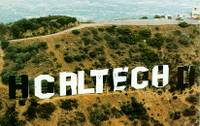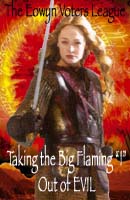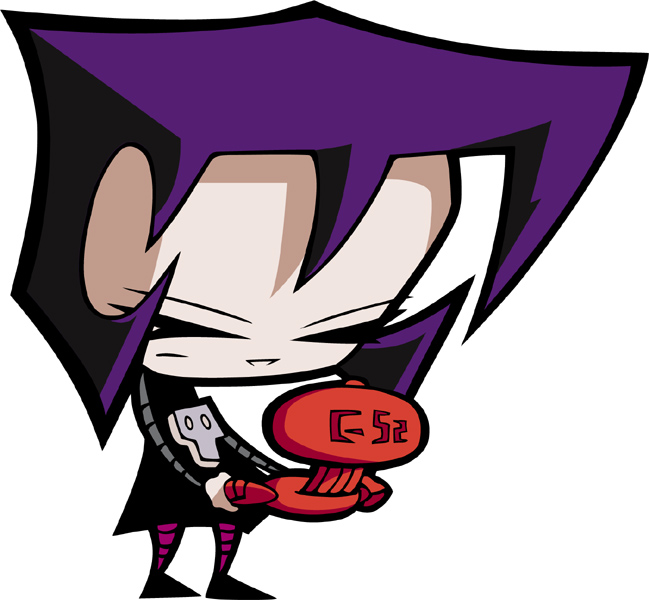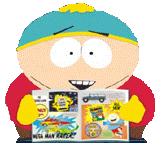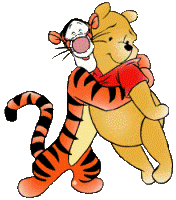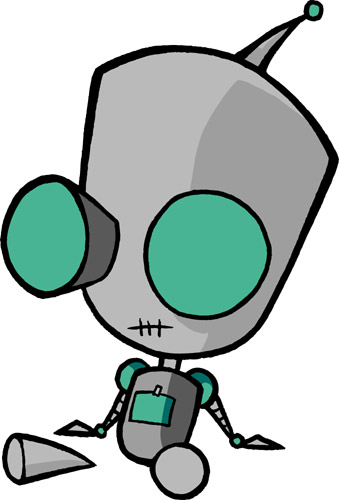August 25, 2005
Review- Eldest by Christopher Paolini
Well, ok this isn't strictly a review, but here goes.
Eldest, the second book in Paolini's Inheritance trilogy just came out and I picked it up yesterday. It took me all day to finish it because the thing was Harry-Potter sized. Almost 700 pages (the book is across the room, or I'd give you the exact number.... but I distinctly remember seeing page 666...).
It's very similar in style and tone to Eragon, it's predecessor. One difference is that since much of the plot of Eldest revolves around Eragon's time in the company of elves MANY MANY new words in the ancient dialect are presented, and although there is a glossary in the back, it's kind of a pain in the ass to have to flip back and forth to figure out what's being said in some cases.
Like Eragon, Eldest is also clearly a product of a modern writer. The influence of Tolkien and Lucas remains strong. In the case of Tolkien, his influence is clear in the races of elves and dwarves, their language and culture, their interaction. Although I must say that it's kind of unnerving to read words in "elvish" that should be "dwarvish" (if you're used to Tolkien). As for the influence of George Lucas, let's just say the kid really SHOULD get out more. More on this below the fold (SPOILERS, mostly from Eragon, but key ones from Eldest, too)
If you've never read Eragon, let me give you a summary:
An orphan boy raised on a farm by his uncle meets his destiny when he finds something precious in the forest. His find turns out to be a dragon egg, revealing his destiny as the last of the Riders, the ancient group of men, elves, and dragons that until recently had served as the protectors of Alagaesia, their homeland. Too soon, the Emperor Galbatorix discovers that Eragon has a dragon egg and sends assassins after him. They kill his uncle and burn the farm, but Eragon escapes, under the guidance of a mysterious old man named Brom, who we later discover is a former Rider in exile. Under Brom's tutelage he receives a magnificent gift: his father's sword (ok, this is sort of a cheat, you find out who Eragon's father was in Eldest, but you probably were thinking it, right??) Meanwhile, Eragon has begun having visions of a beautiful dark haired woman...
Is this starting to sound familiar? Not yet? Ok, here's more.
Eragon and Brom track the assassins across Alagaesia, discovering their lair and then preparing for battle. At this time they meet a mercenary named Murtagh who agrees to help in their quest. They are attacked by the assassins, and Brom dies. Eragon is imprisoned. He uses his powers as a Rider to break out (with some help from Murtagh and Saphira, his dragon) and at the same time rescues the beautiful woman, an elf princess, who was also imprisoned there. Upon leaving the prison, Eragon, Murtagh, Saphira, and the elf fly to the hidden encampment of the Varden, the rebellion against the Empire. Once there, the elf, Arya, is healed, and Eragon learns that Murtagh is in reality the son of the main servant of the Emperor, a former Rider called Morzan. Morzan had been the emperor's closest ally and chief enforcer, and when Murtagh refused to serve him and fled, the Emperor began chasing him too.
Sound familiar yet? It should. Because it's also the plot of Star Wars Ep IV A New Hope. Farm Boy orphan has a chance encounter with his destiny that brings him into a new relationship with a crazy old man he has known all his life and destroys the family's farm in flames. He has a vision (robot-provided) of a beautiful dark-haired woman in trouble. The old man gives him his father's sword, and they depart together to thwart the Emperor's plans. They meet up with a mercenary who helps them for reasons of his own, and eventually they save the dark-haired princess. The old man is killed in order that the young man might complete the quest which they never were destined to complete together. The boy and the mercenary and the Princess fly to the Rebellion, where they play a crucial role in defeating the armies of the Emperor.
The only difference is that you don't learn that Eragon REALLY IS Luke Skywalker until the end of book 2, when his brother reveals his true identity.
Eldest picks up where Eragon leaves off. And it too is clearly Star Wars inspired. After picking up the pieces of the great battle and fighting again with the remnants of the Emperor's forces, Eragon and Saphira journey to the land of the elves so that Eragon may be instructed by Togoro Ikonoka, "the cripple who was whole", an ancient, wizened elf Rider. Much of the book focuses on Eragon's training under the old elf and his struggle to maintain focus despite the fact that he is in love with the elf princess. When Eragon leaves to face battle with the rebellion, he promises to return to complete his training...
On the battle field, he meets Murtagh, whom he has long thought dead in battle, and Murtagh reveals that he too is a Rider, has been seduced by the Emperor, and is also Eragon's older brother. Eragon uses the good left in Murtagh to talk him into a temporary truce between them, but Murtagh takes Eragon's sword as his rightful inheritance as the eldest.
(Luke confronts Vader, they fight, they talk, Vader takes Luke's hand off and he loses his sword... Vader leaves him to die. Except that Vader in this case is also Han Solo.....)
Another great portion of the book follows what happens in Carvahall, Paolini's Tattooine. After Eragon flees, the Emperor continues to beseige the village with soldiers and assassins, and Eragon's cousin, Roran, who was away when his Father was killed, leads them in battle, and then away from the town in a desperate attempt to avoid being turned into slaves after his true love is kidnapped by the assassins.
Roran and company arrive just in time for the battle. Roran in fact plays a crucial part in the Rebellion's victory in that he kills the Twins, magicians who betrayed the alliance to the Emperor, kidnapped Murtagh, and killed the former leader of the group, Ajihad.
You can probably figure out the rest if you've ever seen Empire Strikes Back.
Overall, the book was great, but Paolini suffers from that malady common to young writers in that hs is not yet a master of subtlety. For example, in Eragon, the witch Angela reads Eragon's fortune and tells him that he will love a Princess and be betrayed by a family member. It doesn't take many brains to figure out that Arya (the elf) is a princess and that Murtagh will turn out to be his brother and betray. It was also no shock that the Twins were allied with the Emperor. Their deeds were just too obvious. Combine that with the straight-up copycat plot , and the whole story is largely predictable.
Not that that's really a bad thing. I'm hoping for the super-happy Return of the Jedi ending, complete with fireworks and the Ewok song.
Posted by caltechgirl at August 25, 2005 11:54 AM | TrackBackI just finished reading “Eldest” and enjoyed the development of an enlightened spiritual state in the characters. The idea of using the living beings in the environment as a source of power to enable change, (i.e. a logic based magic system), the presentation of a situation where the bad beings have a more efficient form of magic because of 100 years more practice than the good beings, & then using this to produce a cliff-hanger, causes me to speculate about how this occurred and about how the contest will be won.
The facts as presented concerning magic:
With the proper awareness, life-force can be used to change creation
The complexity and speed of the change determine the amount of life force needed; i.e. increasing complexity and speed use proportionally more life-force
Language has been used to structure the life-force changes and thereby make controlling them easier
Song is used to make complex changes easier and faster
Life-force can be acquired from living beings other than oneself, the extraction of which may require replenishment if the life form is to survive
Facts that will be presented concerning magic:
Karma exists, all that you be, (think, say, do etc.) comes back to you
o Bad beings devise ways to delay their Karma or get someone else to carry the burden for them, (i.e. selling one’s soul causes you to be a stand in for the evil one’s Karma)
o Good beings devise ways to speed up their Karmic return. The ultimate goal is to have your Karmic return become instant and immediate, (the end result of having instant Karma = whatever an evil one does to you happens to them instantly and immediately / it cannot go anywhere else or be taken by any other being)
This knowledge of Karma causes good beings to adopt a well known Mahayana Buddhist principle as the foundation of their magic or spiritual practice
o From: “For a Brilliant Life” Shinjuku (Tokyo), Japan July, 1991
o No matter what the reason
o One must never kill another person
o One must never kill oneself
o The wisdom of Buddhist teachings begins and ends here
o By: Daisaku Ikeda
To Continue To Be Forgiven Always Remember
o Forgiving a living being,
o oneself or others,
o is a charitable act.
o Virtue is its own reward.
o Virtue is its own punishment.
Methods by which the bad beings could increase the speed and complexity, (i.e. efficiency), of their magic, (ability to change creation or create):
Change the dragon so that it becomes an energy storehouse, much the way a camel stores water
Use the life-force of the amassed armies to enact complex changes quickly, killing large numbers of the soldiers in the process
Use the energy of the souls of the dead to cause the changes, causing these non-corporeal beings extreme suffering, (since they are not mortal and cannot die); access to this type of energy source usually implies extreme evil, such as a “Deal with the Devil”
Methods by which the good beings could increase the speed and complexity, (i.e. efficiency), of their magic, (ability to change creation or create):
Use of the sun as a life-force source, the disadvantage of this is that it is exhaustible, i.e. a finite source
Use the central creative force in creation as a life-force source, the advantage of this source is that it is infinite. This source is better know as, The Incomprehensible Mystic Law of Cause and Effect, Allah, and/or God; depending upon your perspective. This is why good always wins over evil.
The end result of this is good beings who do no harm, defeat all evil (with the warning that, “The judgment you render is your own!”), heal the sick, raise the dead, walk on water, feed the multitudes, and gradually by example, teach all beings The Way.
Regarding Paolini's ripping off 'Lord of the Rings' and/or 'Star Wars'; pardon me but didn't those author also rip off their basic concepts from others? Isn't all this the classic hero's journey dating back to the beginning of time?
Doesn't the every hero always meet and lose Elder Guides?
Doesn't the hero always have, if not a love interest, at least a female interest?
Doesn't a 'buddy', a second, always appear to assist the hero?
True there are similarities as you have pointed out, but the stories you compare Eldest to are also similar to and borrowed from general myth, legend, and fairtale.
Just a few thoughts.
Steve
Posted by: Steve at September 22, 2005 04:10 PM
